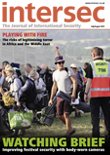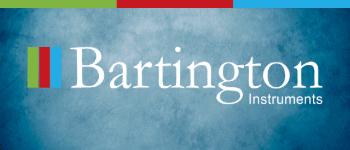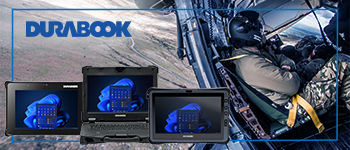Be Prepared
Rupert Godesen highlights the importance of undergoing appropriate training before entering potentially hostile enviroments
A few weeks ago, I was dropping my son off at school. He is currently obsessed with dinosaurs and would not leave the house without his Allosaurus, so along he came for the short buggy ride. The teacher at the gate remarked: “Well that’s a fine-looking T-Rex you have there”. Puzzled and frowning at her display of ignorance my son said, “It’s an Allosaurus Miss Taylor”, I smiled. Miss Taylor: nil, four-year-old: one.
The following day, it was the turn of Archaeopteryx (a flying dinosaur) and Miss Taylor fell helplessly into our well-laid trap “That’s a fine looking Pterodactyl young man”, he looked at her quizzically and replied slowly “Miss Taylor it’s an Archaeopteryx” pronouncing it flawlessly. Miss Taylor: nil, four-year-old: two.
The following morning, my boy and I selected our last passenger with care. We approached the gate, both smiling conspiratorially as Miss Taylor (who, I have to say was not looking particularly comfortable) avoided our gaze, her body language betraying that she was not looking forward to seeing us both. Needless to say, she blew it, mistaking our Ankylosaurus for a Stegosaurus. Rookie error, but my son gave her a big hug and we didn’t bring any more dinosaurs in to save her further humiliation.
As amusing and cute as that exchange was, what does it have to do with training staff how to operate in a hostile environment? What is a hostile environment anyway? If we dust off the dictionary (or reach for your smartphone), we might read: “A country that is riven by poverty, inequality and injustice, where the rule of law has largely broken down, police prey on the citizens, crimes often go unpunished, off duty police openly use their positions to line their pockets”.
A place where politicians work solely for the benefit of themselves and their families, not the citizens who pay their wages, and then pilfer those meagre wages. Where the weak are predated on by the strong, as in nature. Where the only rule is that of the metaphorical jungle, where might is right. Or to put it more simply, it might just be a part of the world about which we know almost nothing, and are walking into it with our eyes closed, arms outstretched fumbling along.
What’s that line from the film The Matrix? When Agent Smith says to Neo during a pause in one of their punch ups: “Still using all the muscles, but the most important one” ie: his brain. Let’s fire up the grey matter and start doing your research.
Knowledge is power, a vital tool in our protective arsenal when we’re looking to shield ourselves from harm. Without it we are at a distinct disadvantage against a well-informed opponent in any arena, as the hapless Miss Taylor discovered. And the route to that knowledge is an enquiring/open mind and doing your research. Brains will beat braun in most encounters.
Picture a sliding-doors moment. We see two travellers, Mike and Jason, heading off separately on an assignment. Mike has done lots of research, he started as soon as he found out he was going (start as early as you can, because you may have to act on the info you uncover), he has received a comprehensive brief on where he’s going and who he’s meeting. In his own time he sought out a colleague from another department, who had just returned from a year in the country, who agreed to meet for lunch and pass on some top tips.
Mike is now armed with a valuable up-to-date picture of what awaits him when he steps into the rowdy cacophony, arriving at the airport in the middle of the night exhausted after his flight. He knows he won’t be greeted by the usual visual anchors he’s used to – Costa, Burger King, WHSmiths etc. Instead he’s going to be walking into something akin to a bazaar, and it’s going to be bedlam. He also knows it’s full of chancers, conmen and pick pockets, so he’s on his guard.
He knows that the cafes and bars in town, don’t take cards, only cash. He has learned that purchasing the requisite visa upon arrival will cost him £30 in sterling. It will only be accepted if it looks like it’s come directly from the constantly humming QE press. Crumpled notes will not be accepted. He now knows that to get out of the airport he’s going to need at least three passport-style photos for passes, and guess what, there isn’t a branch of Jessops or a photo booth anywhere nearby. He adds these to his list of things to get, along with a door wedge for his room and some wet wipes.
He also knows (thanks to his lunch guest) how much a taxi costs and where the best spot to get one is: “Out of the terminal building, turn right, walk all the way down the end past the bus stop, that’s where the locals get cabs from and they won’t rip you off” should your fixer/driver not show up “time keeping doesn’t have the same importance attached to it as it does here at home”.
His colleague has also warned him that unofficial taxis routinely copy the names of international travellers from the clipboards they’ve spotted down the arrivals line. Many a weary traveller eagerly hops into these cabs without checking their driver’s identity, only to find out too late and sometimes at considerable cost.
Mike learns that the best place to change dollars into local currency is in the taxis, which offer by far the best rate. He’s taken the time to acquaint himself with currency and learnt 15 useful phrases and icebreakers. He knows not to make disparaging comments (even in jest) about the local monarch, even though this immoral royal gets a rough ride in our newspapers at home for their cavalier antics. Mike not only had a convivial lunch, but is feeling great about his trip and enjoys the last couple of evenings with his family before heading off. Full of confidence and able to concentrate on doing a good job, representing not only himself well but also his organisation in front of their international partners.
Jason by contrast has done almost nothing, well nothing that is but worry. He has busied himself with unimportant jobs that he convinces himself are vital preparation. Creating a travel play list on his phone or tweaking his first aid kit. Cleaning out the garage and perusing Amazon for books about the region, which he promptly doesn’t read. His subconscious meanwhile has been hinting in less and less subtle ways that he really ought to start his research. Our subconscious is, after all, our watchful (not always very helpful) guardian that looks out for things that worry it. If you want to learn more about how this guy can help or hinder you then Prof Steve Peters The Chimp Paradox is a brilliant read.
Jason, of course, leaves it to the last moment and, too little too late, discovers that he’s ill prepared. He heads off to the airport after a row with his wife, who is at a loss as to why he’s been so irritable before a work trip that he ought to be looking forward to. If I was a betting man, I would say that Jason makes a hash of his trip and comes back with a few extra grey hairs, while Mike has a great time and represents himself and his firm well.
If you’re sending staff overseas to a part of the world that they’re not familiar with, one of the best investments you can make is in knowledge. Knowledge is indeed power (as the saying goes) and from knowledge will come the confidence to use their imagination and initiative to deal with situations that arise. But we must also be wary when that knowledge becomes over confidence bordering on the cocky or arrogant.
One of the things that we can absolutely depend upon in this life, is that things change all the time and often in ways that you can’t predict. Some years ago, as a young soldier serving in Afghanistan, my team was conducting meetings in an area in the South of Helmand. We were making detailed preparations for the meetings at our base. We were a very small team and had to plan every stage to ensure we wouldn’t over reach and land in hot water.
An older colleague who’s served in the North two or three years before kept on saying to me: “I know the Afghans” whenever I asked a question or sent up a request to a higher authority. That to me was a red flag: he was contributing little to the discussion and in my opinion was showing off. An investment in knowledge gives us flexibility in our choices, as well as a time advantage and an opportunity to think ahead get the resources in place to deal with things.
Among the most satisfying things in life, I believe, is making a discovery, learning something new or solving a problem so not only will it get you that much craved dopamine hit, but it’s going to make you and your colleagues safer. And that, after all, is what really matters.
Rupert Godesen, founder of HASP Training Ltd, and author of Travelling Safely Overseas has over 14 years teaching HEAT Training, holder of the CPP and studying for his PSP.









